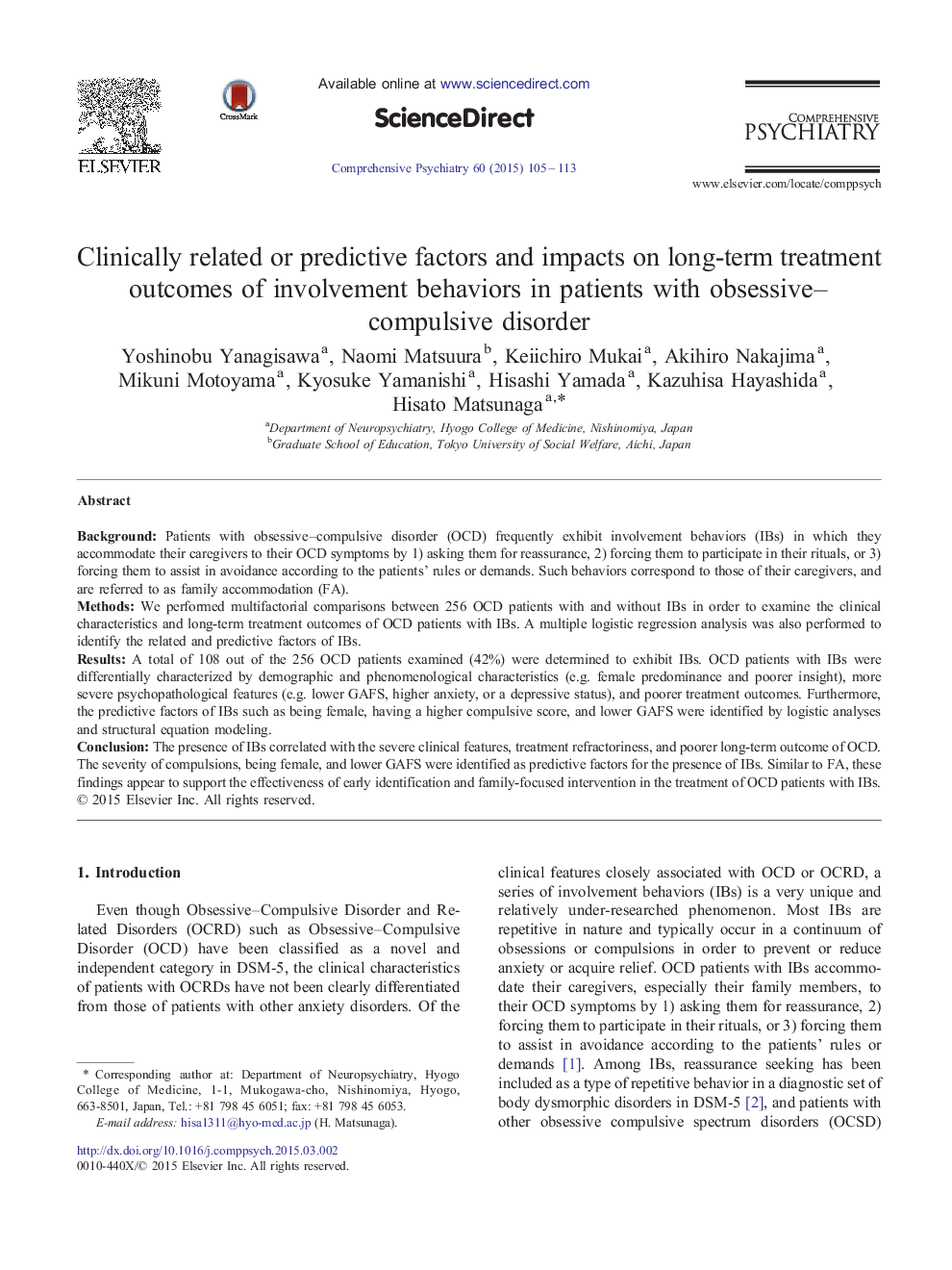| کد مقاله | کد نشریه | سال انتشار | مقاله انگلیسی | نسخه تمام متن |
|---|---|---|---|---|
| 318006 | 538259 | 2015 | 9 صفحه PDF | دانلود رایگان |
BackgroundPatients with obsessive–compulsive disorder (OCD) frequently exhibit involvement behaviors (IBs) in which they accommodate their caregivers to their OCD symptoms by 1) asking them for reassurance, 2) forcing them to participate in their rituals, or 3) forcing them to assist in avoidance according to the patients’ rules or demands. Such behaviors correspond to those of their caregivers, and are referred to as family accommodation (FA).MethodsWe performed multifactorial comparisons between 256 OCD patients with and without IBs in order to examine the clinical characteristics and long-term treatment outcomes of OCD patients with IBs. A multiple logistic regression analysis was also performed to identify the related and predictive factors of IBs.ResultsA total of 108 out of the 256 OCD patients examined (42%) were determined to exhibit IBs. OCD patients with IBs were differentially characterized by demographic and phenomenological characteristics (e.g. female predominance and poorer insight), more severe psychopathological features (e.g. lower GAFS, higher anxiety, or a depressive status), and poorer treatment outcomes. Furthermore, the predictive factors of IBs such as being female, having a higher compulsive score, and lower GAFS were identified by logistic analyses and structural equation modeling.ConclusionThe presence of IBs correlated with the severe clinical features, treatment refractoriness, and poorer long-term outcome of OCD. The severity of compulsions, being female, and lower GAFS were identified as predictive factors for the presence of IBs. Similar to FA, these findings appear to support the effectiveness of early identification and family-focused intervention in the treatment of OCD patients with IBs.
Journal: Comprehensive Psychiatry - Volume 60, July 2015, Pages 105–113
